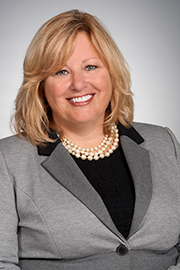- Nov/28/22 2:10:00 p.m.
You’re welcome.
Speaker, we’re taking action—like the launch of a labour campaign and new training opportunities across the province.
We will also be taking steps to increase the number of large animal vets in Ontario, which leads me another initiative included in this fall’s red tape reduction package.
The outdated Veterinarians Act is one that has limited our province for a while now, and it’s time to bring it into the 21st century, so that farmers and pet owners alike are able to access the care their animals need. We have launched consultations to modernize and reform the Veterinarians Act, and I’m very pleased that our colleague and friend from Elgin–Middlesex–London is going to be leading those consultations. He will do an amazing job. I want to share with you that it’s very important that we do not keep outdated legislation holding back vets and vet techs from being able to work as effectively as possible across this province. That’s why the consultations to modernize the Veterinarians Act are very important at this time.
Our goal is to introduce legislation that, if passed, would equip vets and registered vet techs with the tools they need to meet today’s demands. For instance, our veterinarian on our farm is just a text away, and that’s invaluable. It gives us confidence in how we care for our livestock as well.
I think there’s much to be said about this amazing piece of legislation introduced and being debated today. The Less Red Tape, Stronger Ontario Act is another example of how our government is standing with our agri-food sector and building an even stronger, more secure sector that Ontarians can have every confidence in.
Another thing is modernizing a really important piece of legislation that talks to how we allow custom feeding amongst feeder cattle co-op members. To quote Jack Chaffe, president of the Beef Farmers of Ontario: “The proposed change to the ministry of agriculture and rural affairs act is a positive step that will help create new opportunities for business activity within the feeder cattle loan guarantee co-operatives”—or, as I know it, feeder finance—“reduce risks to lenders, and provide custom feeders with access to competitive financing.” This is so important as we try to attract new people to that sector, especially young and new farmers alike.
We’re also proposing changes to the Animal Health Act, which will allow a minister such as myself to take immediate action to protect animal and public health on the advice of the Chief Veterinarian for Ontario in response to an animal health crisis, much like we faced with the avian flu situation.
I want to quote the chair of Chicken Farmers of Ontario, Murray Opsteen. He said, “The health and safety of animals in our care is top priority for Ontario’s chicken farmers. This proposed amendment to the Animal Health Act will enable us to have greater confidence that during an animal disease emergency, our flocks and the Ontario food supply are protected.”
Speaker, at the end of the day, it is such a pleasure to see ministries, under the leadership of Premier Ford, working hand in glove, because reducing red tape and reducing barriers is what businesses in Ontario need. It’s our government that has been listening. It’s our government that is standing up every session—fall and spring—to continue to reduce red tape in this province. And because of that, our businesses will be stronger.
- Hear!
- Rabble!
- Nov/28/22 2:20:00 p.m.
I want to thank my honourable colleague on the other side for that important question.
I do want to highlight the fact that our minister, the Attorney General of Ontario, obviously has been doing a tremendous, tremendous job over the last four and a half years modernizing our justice system.
I’m sure the member opposite would understand that the previous Liberal government, for 15 years, and the mess they left us with—obviously, it does take a little bit of time to clean all of that up. I would also point out the fact that we all know that the opposition spent most of those 15 years supporting the Liberals’ inaction on a lot of those items.
As I mentioned in my remarks, the province we inherited when we formed government in 2018 had the largest regulatory burden in the province. So, yes, we are working each and every day diligently, and we are working to address some of the challenges that—
It’s an important question about the consultation. Absolutely, consultations on any changes that our government proposes to introduce are a big part of our mandate. Her question is related to the consultation to do with the veterinarians. Of course, we will be holding very comprehensive consultations, and I hope that each one of our colleagues in this Legislature can play a role in them. Any input that can be provided, whether it’s from stakeholders or whether it’s from industry leaders, is always welcome. We always look forward to it because, ultimately, individuals who deal with situations on a day-to-day basis are obviously the best ones to provide us input so we can get the best bang for the buck.
- Hear!
- Rabble!
- Nov/28/22 2:20:00 p.m.
My thanks to the member for Whitby for being such a strong voice for his community and for asking this question.
When I think about some piece of this legislation that really applies to my riding—and specifically, the diversity that he’s referring to, where I have urban cores alongside quite rural areas, of course bordering two Great Lakes—I think about the changes to the Veterinarians Act. When the Veterinarians Act came into effect, people didn’t have as many pets as they do nowadays, but they had a lot of farm animals and they had a lot of horses that they used for transportation and for various reasons. One day, vets in my riding are treating important pets to people and their families, and the next day, they’re on a farm, treating in an industrial type of setting, to make sure that we’re eating safe food. The changes that we’re bringing forward in this act will update and modernize that act to ensure that we’re reflecting the changes in Ontario and the needs of animal welfare.
We saw labour disruptions impact our supply chains, and we’re taking action to make sure that doesn’t happen again, but we’re doing so in a way that protects our environment, protects workers, and protects the health of the people of this province, and we’re going to keep doing that.
- Hear!
- Rabble!
- Nov/28/22 2:20:00 p.m.
I want to thank Minister Gill and Minister Thompson for joining me at the food terminal in Etobicoke–Lakeshore for your announcement this morning. Thank you for coming to the great riding of Etobicoke–Lakeshore.
My question is around animal health preparedness and what the minister was talking about with veterinarians. With my vet bills, I might as well have a whole farm, because my dog is at the vet so often. When you are talking with veterinarians—I’m just wondering if you are planning on doing some consultations. And what do we plan on getting out of the consultations, if there are any? What I’ve been hearing is that there are not a lot of vets. We’re lacking veterinarians, and we’re also lacking vet techs. Will these consultations and these changes help get more people into that field?
- Hear!
- Rabble!





